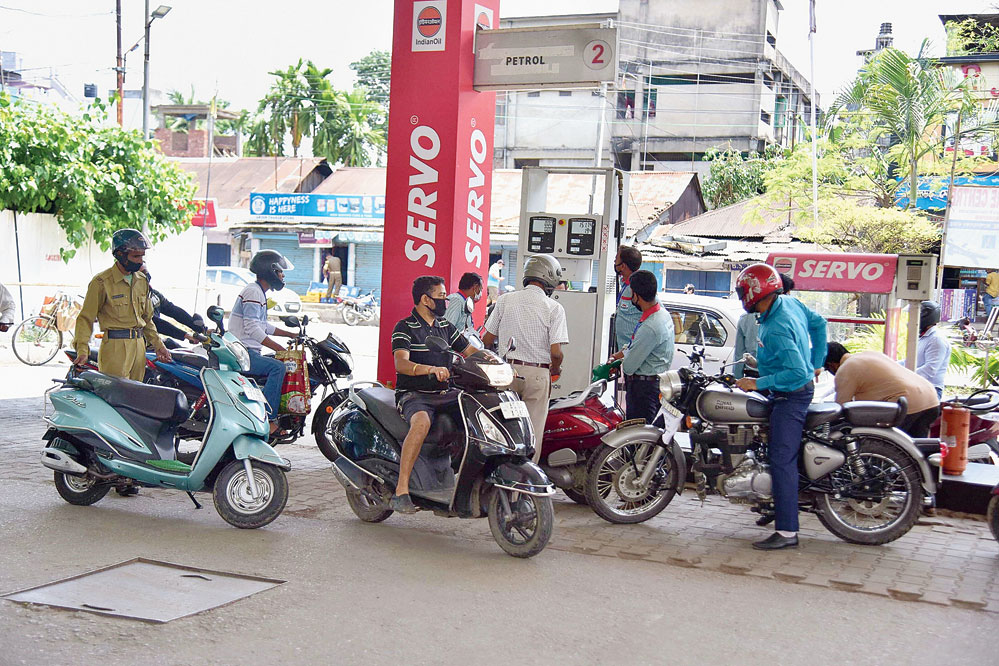The oil industry expects fuel demand to start limping back to the pre-Covid period from this month with the relaxation in lockdown and increased movement of vehicles across the country.
Analysts said a change in lifestyle would lead to people preferring personal vehicles to public transport, which would spur fuel demand and boost vehicle sales.
The fuel demand had crashed 70 per cent in April and started to pick up in May.
Sources said the demand would ramp up to about 70 per cent to 80 per cent of the pre-Covid level in the next three months.
They said Indian Oil’s refineries plan to raise their capacity utilisation rate to 80 per cent to meet demand. Other state-owned refiners, BPCL and HPCL, are also drawing up plans to boost capacity.
The lockdown and travel curbs aimed at stemming the spread of Covid-19 since March 25 has forced people to stay home, which cut demand.
The government had extended its nationwide restrictions to May 31 but relaxed rules in areas with lower number of cases leading to some recovery in fuel demand.
Petrol sales in the first half of May declined 47.5 per cent to 570,000 tonnes from a year ago but were up from 334,000 tonnes sold in the first half of April, when sales declined 61 per cent.
Sales of diesel fell 38 per cent to about 1.93 million tonnes in the first half of May from a year earlier. In April, they had fallen by an average of 57 per cent. In the first half of April, the refiners sold 1.1 million tonnes of diesel.
The output of eight core industries for April contracted a whopping 38.1 percent compared with a decline of 9 percent in March. Crude oil output fell 6.4 per cent, refinery 24.2 per cent and natural gas 19.9 per cent.
Analysts said there would be an increased use of personal vehicles such as two-wheelers and cars as people would try to avoid the use of public transport, which would increase the fuel demand.
The use of public transport is expected to reduce for six months post lockdown and health safety will be the top priority for the people in choosing the most suitable mode of travel, a recent analysis by the Centre for Science and Environment said.
While this would boost the demand of petrol, the resolution of the logistical and financial constraints faced by truckers would spur the demand of diesel, the analysts said.
Rating agency Crisil said the used car market stands to gain more from the pandemic as opposed to the new vehicles market. Covid-19 has taken a toll on people's personal finances as well as businesses in general. In the wake of such events, not a lot of people will prefer spending money on new vehicles and instead opt for affordable used vehicles to address their personal mobility needs.
The International Energy Agency forecasts the nation’s fuel demand will return to year-ago levels by the fourth quarter. The Paris-based body sees it declining 8 per cent on an annual basis in 2020 with diesel and gasoline consumption likely to drop about 12 per cent and jet fuel about 18 per cent, according to its monthly oil market report.











